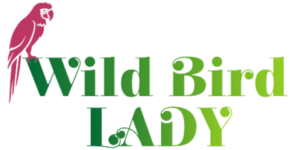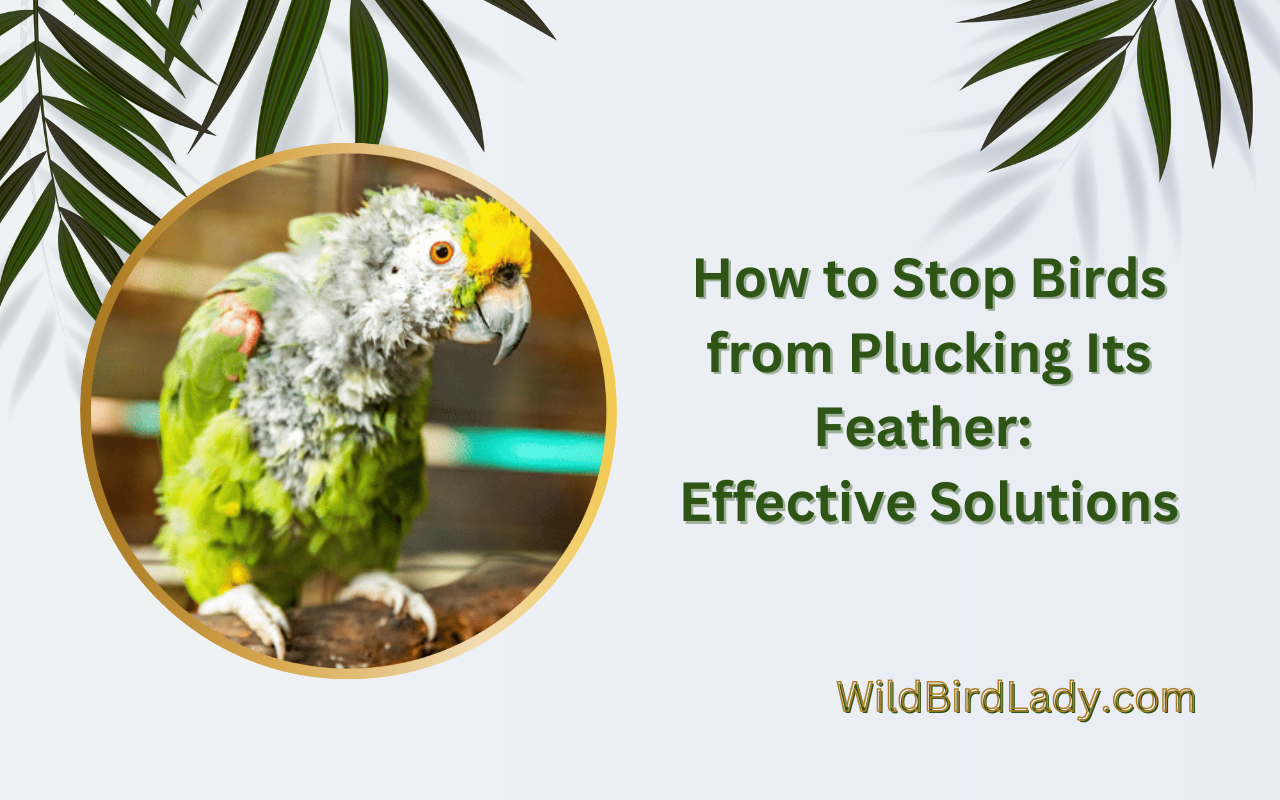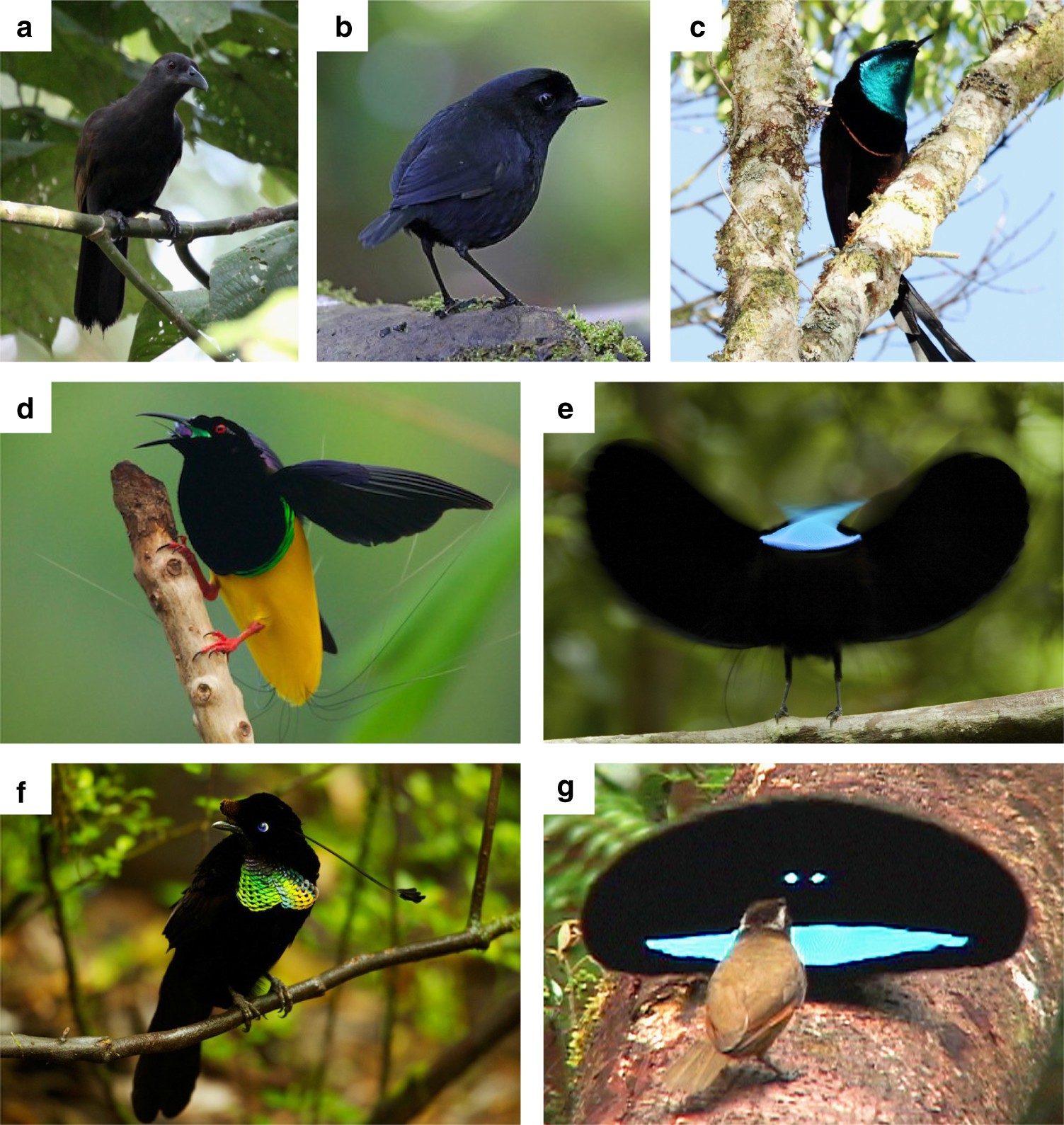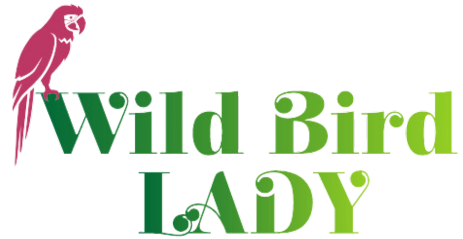🕊️ Various factors, including boredom, lack of socialization, and certain diseases, cause feather plucking in birds. Solutions include providing a stimulating environment, proper nutrition, and medical treatment when necessary.
Feather plucking in birds is a common problem among bird owners and can be caused by various factors. Birds that are bored or lack socialization may resort to feather plucking. Health issues such as parasites or liver disease can also lead to feather plucking.
While feather plucking can become a habit for some birds, diagnosing and treating the underlying cause is important. Solutions to prevent or stop feather plucking include providing a stimulating environment, ensuring proper nutrition, and seeking medical treatment when necessary. This article will explore the causes and solutions to feather plucking in birds.
Credit: www.nature.com
Understanding Feather Plucking In Birds
Feather plucking is a common problem among pet birds, resulting in increased stress and anxiety levels for the bird and its owner. Understanding the causes of this behaviour is crucial in finding suitable solutions to prevent or resolve the issue.
What Is Feather Plucking?
Feather plucking, also known as feather picking or feather damaging behaviour, is a condition where a bird obsessively preens, bites, or pulls out its own feathers, causing bald spots on its body. In extreme cases, this behaviour can result in skin infections, severe feather loss, and even self-mutilation.
Bird owners often become distressed when they observe this behaviour in their pets.
Causes Of Feather Plucking
Feather plucking behaviour can be attributed to various physical, psychological, and environmental factors. Here are the most common causes:
Psychological Causes
- Boredom, frustration, or lack of mental stimulation
- Stress or anxiety due to changes in the environment or routine
- Loneliness or lack of social interaction
- Fear or phobias
- Obsessive-compulsive disorder (OCD)
- Depression
Physical Causes
- Parasites such as mites, lice, or feather mites
- Allergic reactions to food or environmental components
- Infections or injuries
- Hormonal imbalances
Environmental Causes
- Poor diet lacking in essential vitamins and nutrients
- Overcrowding or inadequate cage size
- Low or high humidity levels in the bird’s environment
- Exposure to toxic fumes such as smoke or cleaning chemicals
Understanding the causes of feather plucking in birds is crucial in developing effective solutions to prevent or manage the behaviour. However, before attempting any treatments, it is essential to consult with a veterinarian, bird behaviourist, or both.
Feather plucking can be a challenging condition for bird owners to manage. By identifying the underlying causes, appropriate treatments can be implemented to prevent further damage and promote healing.
Effective Solutions: How to Stop Birds from Plucking Its Features
Feather plucking is a serious issue that impacts birds both physically and emotionally. Feather plucking can lead to the destruction of feathers, skin irritation, and even infection. It can also cause great stress and anxiety for the birds in question.
Fortunately, there are a variety of effective solutions for feather plucking in birds.
Creating A Stimulating Environment
One of the key triggers for feather plucking is boredom. Birds that are not challenged and engaged may turn to feather plucking as a form of self-stimulation. Therefore, creating a stimulating environment is essential. Here are a few ways to achieve this:
- Providing plenty of toys and chewable objects.
- Rotating toys to prevent boredom.
- Offering opportunities for exercise and flight.
- Providing different types of perches, including swings, ropes, and natural branches.
- Encouraging social interaction with other birds or humans.
Changing Your Bird’S Diet
Another possible contributing factor to feather plucking is a poor diet. Birds who are not receiving the proper nutrients may turn to feather plucking as a way to alleviate stress. Here are a few ways to ensure your bird is receiving the right nutrition:
- Feeding your bird a varied diet that includes fruits, vegetables, and protein sources.
- Providing high-quality pellet food as the base of your bird’s diet.
- Avoiding foods high in sugar, salt, and unhealthy fats.
- Offering treats in moderation.
Using Behavioral Training Techniques
Behavioral training can be incredibly effective in resolving feather-plucking habits. Here are a few techniques to try:
- Positive reinforcement training, using verbal praise or healthy treats.
- Teaching your bird new tricks or behaviors to prevent boredom.
- Using clicker training to reward positive behavior.
- Offering your bird praise when he is preening himself in a healthy way.
Consulting A Professional
Finally, consider consulting a professional if your bird’s feather-plucking habit persists. An avian veterinarian or a bird behaviorist can help you diagnose and address the underlying issue causing the feather plucking.
Remember, feather plucking can be a complex and ongoing issue requiring patience and dedication. By creating a stimulating environment, changing your bird’s diet, using behavioral training techniques, and seeking professional help if necessary, you can help your bird live a happy and healthy life.
Symptoms of Feather Plucking
Visible Signs
Feather plucking can leave some visible signs on the bird’s physical appearance. Here are some of the physical signs you may notice:
- Bald spots on the body
- Broken or missing feathers
- Damaged skin with scratch marks
- Bloody wounds
Behavioral Signs
Feather plucking can also trigger some behavioral changes in birds. If you notice any of the following behaviors, it may be a sign of feather plucking:
- Excessive preening
- Restlessness and anxiety
- Aggression toward other birds or humans
- Lack of interest in food or toys
Emotional Signs
Feather plucking can have severe emotional effects on birds. Some emotional signs you may notice include:
- Depression
- Self-mutilation
- Stress and anxiety
- Fear or lack of trust toward humans
As pet owners, it’s important to recognize these symptoms early on to prevent further damage to the bird’s health. Seek veterinary assistance when necessary and provide your birds with a comfortable environment filled with ample toys and perches. Remember, happy birds are healthy birds.
Consequences of Feather Plucking
Feather Plucking In Birds: Causes And Solutions
Feather plucking is a common behavior in birds that can arise due to various reasons. Not treated at the right time can lead to severe consequences that can leave your bird in a terrible state. We will discuss the consequences of feather plucking in birds and its impact on their overall health and behavior.
Health Implications
Feather plucking in birds can lead to severe health problems that may require immediate medical attention. Some of the health implications associated with feather plucking include the following:
- Skin damage and infection – excessive feather plucking can lead to hair follicles damage, causing skin inflammation that can lead to infections.
- Nutritional deficiencies – lack of essential nutrients, such as vitamins and minerals in the bird’s diet, can lead to feather plucking and thinning of the feathers.
- Digestive problems – ingesting feathers can cause digestive problems and lead to the formation of gingivitis, an inflammation of the crop.
- Respiratory problems – loose feathers and dust from the feathers can be inhaled by the birds, leading to respiratory problems.
Emotional Consequences
Feather plucking can cause birds emotional distress, impacting their overall behavior and mental well-being. Some of the emotional consequences associated with feather plucking include:
- Depression and anxiety – feather plucking can cause stress and anxiety among birds, leading to depression-like symptoms such as lack of appetite, lethargy, and apathy.
- Aggression – birds that indulge in feather plucking may become aggressive due to the frustration it causes.
- Self-harm – feather plucking can lead to self-harm as birds may resort to biting their skin or feathers.
Social Implications
Feather plucking can impact the social interactions and hierarchies of birds. The social implications associated with feather plucking include:
- Social isolation – feather plucking can cause birds to isolate themselves from others due to their insecurity and embarrassment about their appearance.
- Hierarchy displacement – feather plucking can shift the bird’s social hierarchy as it may change its physical appearance.
Addressing feather plucking in birds is essential for their overall health and well-being. It is essential to identify the underlying causes and take appropriate measures to remedy the condition. Seek professional help if needed, and make sure to provide a healthy environment and a well-balanced diet that meets your bird’s nutritional requirements to prevent feather plucking.
Frequently Asked Questions
What Causes Feather Plucking In Birds?
Feather plucking in birds can be caused by stress, boredom, illness, parasites, or skin irritations.
How Can You Prevent Feather Plucking In Birds?
Prevent feather plucking in birds by providing adequate socialization, environmental enrichment, and veterinary care.
Is Feather Plucking A Sign Of A Disease In Birds?
Yes, feather plucking can signify many diseases, including skin infections, allergies, and psychological distress.
Can Feather Plucking Be Treated In Birds?
Treatment for feather plucking may depend on the underlying cause but may involve behavioral interventions, medication, and changes to the bird’s environment.
When Should I See A Vet For My Bird’s Feather Plucking Behavior?
If a bird is showing signs of feather plucking, seeing a vet as soon as possible is recommended to determine the underlying cause and begin treatment.
Conclusion
Feather plucking in birds is a serious issue that, if left unaddressed, can lead to severe health problems and even death. While the causes of feather plucking are complex and multifaceted, there are several solutions that bird owners can implement to help their feathered friends.
Consistent and regular grooming, providing a healthy diet, and ensuring sufficient environmental enrichment are just a few strategies that can help to prevent feather plucking. Through education and awareness, we can all play a part in addressing this issue and promoting the overall health and well-being of our feathered companions.
By working together, we can create a brighter future for birds and ensure that they receive the care and attention they deserve.
Published on June 16, 2023 | Last Updated on June 27, 2025 by Rifat Ahmed
Latest Posts
What Do Oystercatchers Eat? A Deep Dive into Their Unique Diet
By Rifat Ahmed – Birdwatching Expert with 13 Years of Experience Over the past 13 years of birdwatching, I’ve been mesmerized by many fascinating species, but few birds are as captivating in...
Can Swans Fly? The Truth About These Graceful Giants in Flight
By Rifat Ahmed | Birdwatching Expert with 13+ Years of Experience If you’ve ever seen a swan gliding across a quiet lake, you might wonder: Can swans fly? Their sheer size and elegance on water...



